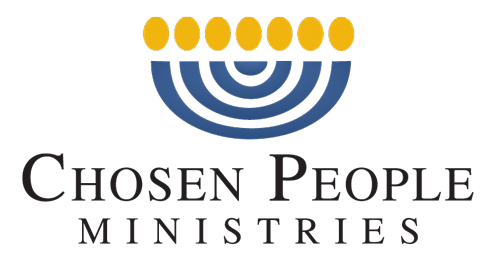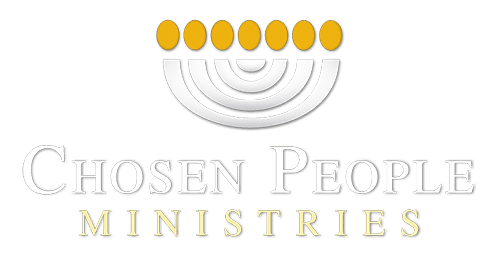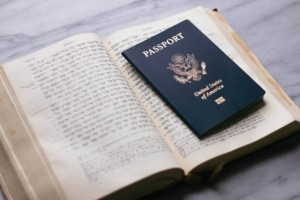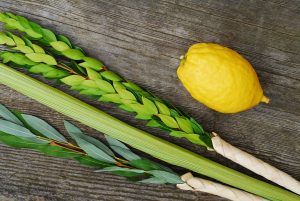Israel Qualifies for United States Visa Waiver Program
After years of discussion and paperwork, Israel will be the forty-first country to enter the United States Visa Waiver Program. Previously, Israelis endured a long process to secure appointments, submit paperwork, and interview for a visa. Many were denied and have never made the trip to the United States. Now, Israelis can fill out an automated application online and receive a response within seventy-two hours. If approved, Israelis will receive a two-year authorization valid for stays of up to ninety consecutive days. US Secretary of State Antony Blinken said, “Israel’s entry into the Visa Waiver Program represents a critical step forward in our strategic partnership with Israel that will further strengthen long-standing people-to-people engagement, economic cooperation, and security coordination between our two countries.” In return, Israel must make it easier for Palestinians with US citizenship to enter Israel.
Israelis still need to obtain a visa to enter ten other countries. Those countries are China, India, Australia, Morocco, Nepal, Vietnam, Azerbaijan, Bahrain, Egypt, and Jordan. Israel’s leaders are trying to obtain a visa waiver for some of these countries.
We are thankful Israelis can now travel more easily to the United States.
Read more about the welcome to the Visa Waiver Program . . .
Read more about the list of countries Israelis still need a visa to enter . . .
Israel and Saudi Arabia Take Steps toward Normalization
The United States has taken steps to broker a normalization agreement between Israel and Saudi Arabia. Since 2020, Israel has made ties with the United Arab Emirates, Bahrain, and Morocco. Israel also enjoys long-established relations with Egypt and Jordan. The United States has been mediating the agreement with Saudi Arabia, which wants to make sure the Palestinians benefit from the deal. The Palestinian Authority (PA) has presented a list of requests it wants Israel to adopt. Considering his far-right government coalition, these concessions will be challenging for Prime Minister Netanyahu to fulfill. For Saudi Arabia, which holds Islam’s two holiest sites, recognizing Israel as a state would be tremendous for Middle East relations. Netanyahu said,
“Such a peace will go a long way to ending the Arab-Israel conflict. It will encourage other Arab states to normalize their relations with Israel. It will enhance the prospects of peace with the Palestinians. It will encourage a broader reconciliation between Judaism and Islam, between Jerusalem and Mecca, between the descendants of Isaac and the descendants of Ishmael.”
Please pray for this major step in peace and recognition between both countries.
Israel Celebrates Sukkot
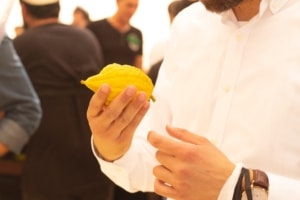
Please pray for blessed conversations to encourage fellow believers or talk about the Lord with not-yet-believers! It is a wonderful time of year for hospitality, gospel conversations, and reflecting on the Lord’s provisions for us!
Refugee Relief Leads to Three-Hour Gospel Conversation
Recently, because of the war in Ukraine, many Jewish people from the former Soviet Union fled to Israel. Most of them are not religious and do not profess belief in God. Still, when they come to their homeland of Israel, it provokes them to think about the spiritual realm. Thanks to the generous support from people like you, we have been able to assist many of these immigrant families. We gave our names and ministry contact information along with our material help (including food, medical supplies, and Hebrew language learning resources). Some of these new families contacted us and forged relationships. Here is one family’s story:
Yanni*, his wife, three children (including one disabled child), and his elderly mother left everything behind and came to Israel to start a new life. When we helped them, he also received our contact information and followed up to ask for help. We met with Yanni in our Messianic center in Tel Aviv to get acquainted. A lawyer by education, he wondered who we were and, most of all, why we helped. I began to tell him about us, and he asked, “How is it possible to combine being a Jew and a Christian simultaneously?” His incredible question—and interest—stretched into a heart-to-heart talk lasting more than three hours! Now, we meet and study Scripture together once a week. Yanni is very open to the gospel and the message of Jesus. We pray for his salvation, for his wife to join our meetings, and for his whole family to know their Messiah.
Please pray Yanni and other new immigrants from the Soviet Union will come to faith in Jesus the Messiah.
*Name changed for privacy
Sukkot Restored
Sukkot, the Feast of Tabernacles, is one of the most elaborate and expressive holidays on the Jewish calendar. It is the end of the agricultural harvest and celebrates God’s provision for Israel. It is a time for joy and rejoicing over all the Lord God has done. During the days of the First and Second Temples in Jerusalem, the Sukkot festival included the most extensive sacrifices and celebrations. It was a time to commemorate God’s provision for the people of Israel when the Lord our God brought us out of Egypt by night (Deuteronomy 16:1) . . .
